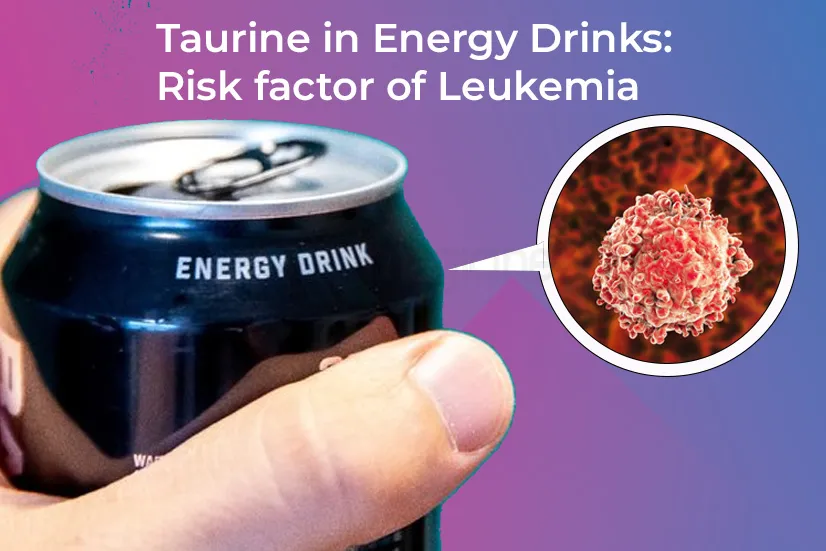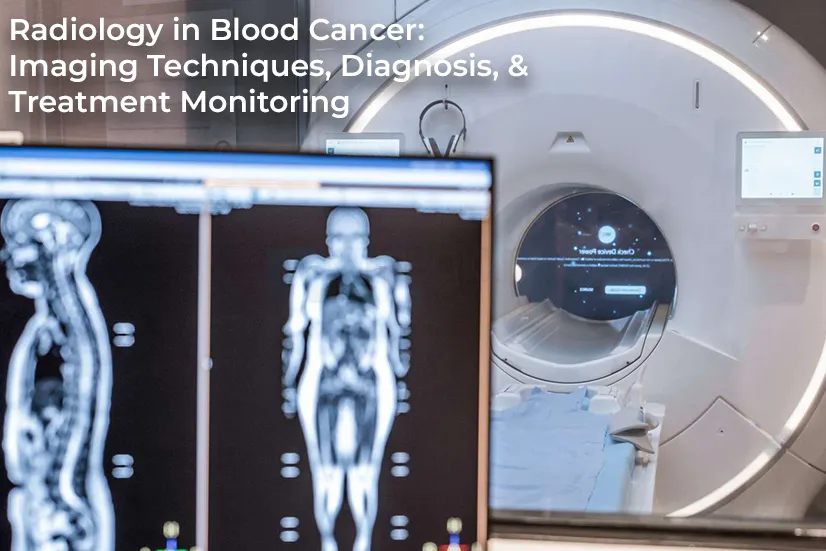How Nutrition Shapes Your Mood and Mind
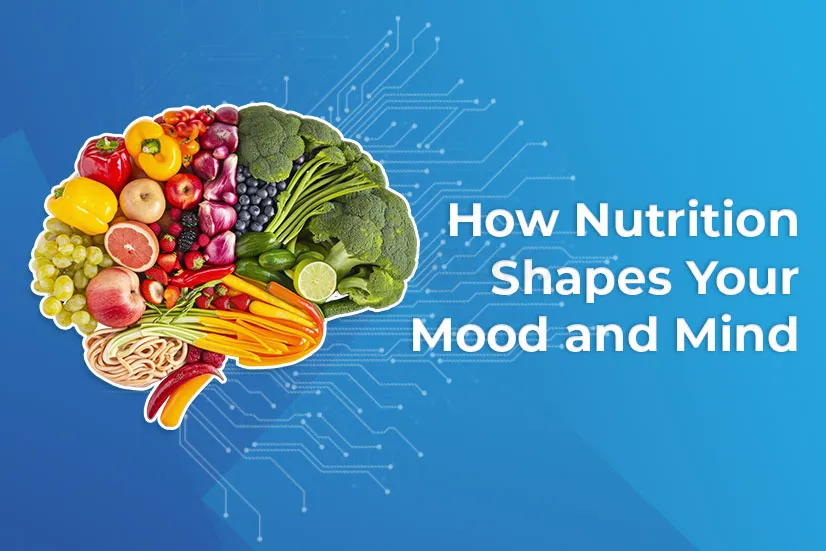
By Nonish Sharma / 23rd September 2025
Have you ever thought that your brain is always "on" no matter what you are doing, sleeping, breathing, or whatever? The brain takes care of your thoughts, moments, breathing, heartbeat, and your senses. It works 24/7 even while you're asleep. We can say it is essential to take care of brain and mental health as it is an important part of overall well-being. Mental health is usually treated like something separate from the body. People think therapy & medications are the only solutions for mental health conditions like depression, anxiety, or stress. However, these treatment options are helpful but not enough because the brain is just like any other organ of the body that needs proper fuel for its functioning. When the body doesn't get proper nutrients, it directly affects the way we think, behave, and feel.
Recent research studies also show a strong connection between nutrient deficiencies and mental health issues. Deficiency of essential vitamins and minerals can cause mood swings, fatigue, irritability, anxiety, and even some other serious mental health disorders. Let's explore in detail how nutrients support the brain, what happens when we are deficient, and how diet, supplements, and lifestyle changes can improve our mental wellness.
Why Mental Health Needs More Than Just Therapy
Therapy indeed plays an important role in mental health wellness, especially for people dealing with stress, anxiety, depression, and negative thought patterns. Therapy provides emotional support and practical tools for managing mental health challenges. But the thing is, therapy alone may not always be enough to solve the root cause of the underlying biological causes of poor mental health.
Our brain needs more energy & nutrients to produce neurotransmitters. Neurotransmitters are the chemicals that regulate mood, memory, and focus, and without proper nutrient consumption, even the best therapy can't resolve the issue fully. Let's understand this concept with the help of an example. Serotonin is a neurotransmitter that helps control mood and happiness, and it is derived from the amino acid tryptophan, which is found in food sources such as eggs, dairy, and nuts. If you don't consume food that contains this amino acid, then your body is unable to make enough serotonin, which can cause depression or anxiety. Similarly, vitamin D helps to regulate brain function, and its low level is linked to seasonal depression.
In today's time, most people have poor eating habits like processed foods, high sugar, and low intake of fresh fruits & vegetables, and over time these habits weaken both the body and mind. Some other factors, like stress, lack of sleep, and chronic illnesses, can also drain the body’s nutrients.
Mental health is not just about what we think and feel; it is also about how our body nourished. When we combine therapy with proper nutrition, it becomes more effective, and long-term recovery becomes easier.
The Gut-Brain Connection and Nutrient Absorption
The gut and brain are closely linked through a connection known as the gut-brain axis. It clearly means that your digestive system health can directly affect your mental health. The gut comprises trillions of bacteria, which are collectively known as the gut microbiome, and they play a crucial role in digesting food, producing vitamins, and even help in the formation of neurotransmitters like serotonin and dopamine.
Poor diet, stress, and illness lead to an unhealthy gut, and it can interfere with nutrient absorption. When nutrient absorption is affected, the body may not absorb enough vitamins and minerals after eating healthy foods. For example, a weak lining causes leaky gut syndrome. In this condition, important nutrients pass through the intestines without being absorbed properly, which causes deficiencies of magnesium, B vitamins, and iron, which are critical for brain health.
Digestive issues like IBS frequently cause anxiety or depression because approximately 90% of serotonin is made in the gut rather than the brain. That's why poor gut health can increase mental health risks, while good gut health promotes better mood and mental health. Enhancing gut health with the help of fibre-rich foods, probiotics, and fewer processed foods can drastically improve nutrient absorption and mental well-being. Thus, a balanced diet can nourish both body and mind.
Top Nutrients for Mental Health
Many nutrients are important for mental well-being, and a deficiency of these nutrients can cause low energy, poor focus, irritability, and even anxiety or depression. Here are the following top nutrients that play a direct role in brain health:
Omega-3 Fatty Acids
Omega-3 Fatty Acids are healthy fats that are essential for brain cell structure and reducing inflammation. They are commonly found in fish, flax seeds, and walnuts. Our body can't produce them, that's why they are called "essential", and you must get them from food or supplements. These fats play an important role in building and repairing brain cells. Some studies also show that people with depression have a low level of omega-3s in their blood. Lower levels of these fats are also linked to anxiety and stress, as they have EPA and DHA that help to reduce brain inflammation and improve communication between brain cells.
Children and adults who consume an omega-3-rich diet have better memory, attention, and emotional stability, while low level is associated with mood swings, irritability, and difficulty concentrating. Some other best sources include salmon, mackerel, chia seeds, flax-seeds, and walnuts. Also, people who don't eat non-vegetarian food can get it from plant-based Omega-3 Supplements.
B-Vitamins (especially B12 and B9)
These are the most important Vitamins for Brain Functions as they help to produce neurotransmitters and promote energy metabolism. Vitamin B12 and folate (B9) are especially crucial for mental health because these vitamins deficiency is strongly linked to depression, fatigue, and memory problems. B12 helps in the production of red blood cells and supports the nervous system as without enough B12 people can experience brain fog, mood swings, and even long-term nerve damage. On the other hand, folate is crucial for the production of serotonin, dopamine, and norepinephrine, chemicals that regulate mood and stress response.
Mostly vegetarians and vegans are at higher risk of B12 deficiency because this vitamin is mainly found in animal products like meat, eggs, and dairy. However folate found in leafy greens, beans, and fortified grains. Regular consumption of B12 and B9 with the help of diet or supplements a person can drastically improve mood stability and energy levels, with good mental health.
Magnesium
Magnesium is also known as the "relaxation mineral" as it relaxes the nervous system and regulates stress. It supports over 300 biochemical reactions in the body and many of which affect brain function. Low magnesium level can cause anxiety, insomnia, irritability, and even depression, it can also worsen the stress. This crucial mineral also helps to regulates cortisol (a stress hormone) and promotes GABA production. GABA is a neurotransmitter that shows calming effects on the brain by promoting the production of happy hormones and reduce the level of stress hormone. Some research studies also found that people with good magnesium levels usually sleep better, feel calmer, and handle stressful situations more effectively as compared to other.
Some natural sources of magnesium include spinach, almonds, pumpkin seeds, dark chocolate, and whole grains. Magnesium Supplements are also widely used to improve sleep quality and reduce anxiety.
Zinc
Zinc is another crucial mineral for mental health which is used to support neurotransmitter balance, brain signaling, and even memory formation. Zinc deficiency is also linked with depression, poor stress tolerance, anxiety, and low motivation.
There is one interesting fact is that zinc level is usually lower in people who do not respond well to antidepressant medication. This shows that zinc may directly affect how the brain processes stress and mood. This mineral also supports the immune system to reduce chronic inflammation because it is also linked to depression and anxiety. By keeping inflammation under control, zinc helps to protect brain health. The best food sources of zinc include oysters, beef, pumpkin seeds, cashews, and legumes. Zinc Supplements can also be taken for people with some with dietary restrictions.
Vitamin D
This vitamin is also known as "sunshine vitamin" because it produced by the body when exposed to sunlight. This vitamin helps to regulate mood and protect against depression. It is an important vitamin for bone health, immunity, and mood regulation and low vitamin D level is linked to the SAD (seasonal affective disorder) which is a type of depression that occurs in the months of winter.
Vitamin D also promotes the production of serotonin and overall brain health and people with low vitamin D usually experience fatigue, sadness, and lack of motivation. In today's time, modern lifestyle changes like indoor work, sunscreen use, and pollution play major role in the deficiency of this vitamin.
Some natural sources of Vitamin D include sunlight, fortified dairy products, fatty fish, and supplements. Regular exposure to sunlight for 15–20 minutes daily can help to maintain good levels of it, but supplements are usually necessary in the areas with limited sun exposure.
Iron
Iron is most important for transporting oxygen to every cell of the body, including brain cells. As low level of iron can cause fatigue, brain fogs, weakness, anemia, weakness and many more health related issues. Children and women are especially at risk due to growth and menstruation. Iron deficiency can also affect the concentration, memory, and emotional balance. It is generally linked to symptoms like restlessness, irritability, and in severe cases, depression. Some best sources of iron include red meat, lentils, spinach, and fortified cereals. Pairing iron-rich foods with vitamin C (like citrus fruits) can improve absorption. Supplements are also recommended to people diagnosed with anemia.
Amino Acids (Tryptophan, Tyrosine)
Amino acids are the basic building blocks of proteins and neurotransmitters like serotonin and dopamine.Tryptophan is used to make serotonin, while tyrosine helps to produce dopamine and norepinephrine. These chemicals are essential for regulating mood, motivation, and stress response. Low intake of tryptophan can directly cause low level of serotonin that can lead to depression and irritability. On the other hand low tyrosine may result in poor focus and lack of motivation.
There are some protein rich foods such as eggs, poultry, beans, nuts, and dairy are great sources of these amino acids you can add them in your daily meal and improve your mental health, energy level and overall physical health.
All of these nutrients are well proven to reduce anxiety, depression, and stress. In the presence of right nutrition brain functioning and health can drastically improve.
Deficiency Symptoms
Nutrient deficiencies can be seen in both physical and mental ways. There are some common signs that your mental health may be affected by deficiencies, including:
- Constant fatigue
- Low energy
- Poor concentration
- Memory problems
- Irritability and mood swings
- Anxiety
- Nervousness
- Depressive symptoms
- Insomnia or poor-quality sleep
- Loss of appetite or cravings
There are some physical signs also:
- Pale skin (iron deficiency)
- Muscle cramps (magnesium deficiency)
- Hair loss (zinc deficiency)
If these deficiencies are left untreated, then they can badly impact mental health conditions and make recovery more difficult.
Can Nutrition Help Depression?
Absolutely yes, There are variety of nutrition that plays a major role in managing depression. However, nutrition can't replace therapy or medication, but a healthy diet can improve brain function and reduce symptoms. Some research studies also show that people who eat balanced diets rich in omega-3s, B-vitamins, magnesium, and vitamin D have a lower risk of developing depression and other mental health problems. For example, a diet that is rich in fish, olive oil, vegetables, and nuts has been linked to better mental health. On the other hand, a diet that is high in processed foods and sugar is linked to higher rates of depression and anxiety in people. By adding nutrients rich food to your daily meal can boost energy, improve sleep, and enhance mood. In this way, we can say that food can really act as a medicine for the brain.
Best Food Sources for Mental Wellness
To support your mental health and overall well being, you can include the following food sources in your daily meal:
- Fatty fish (salmon, sardines, mackerel) to get omega-3s
- Nuts and seeds (almonds, pumpkin seeds, flax seeds) to get zinc, omega-3s, magnesium
- Fruits like bananas and citrus to get vitamin C and boost mood
- Whole grains to get steady energy and B-vitamins
- Leafy greens (spinach, kale) to get magnesium and folate
- Eggs and dairy to get B12 and tryptophan
- Whole grains to get steady energy and B-vitamins
- Legumes (beans, lentils) to get iron and folate
A colorful diet to make sure that your body and brain is getting all the nutrients they need.
When to Consider Supplements
It is true that a proper balanced diet helps to prevent and manage mental health problems. However, sometimes diet alone is not to resolve deficiencies. Busy lifestyles, digestive issues, or limited food availability can make it difficult to get all essential nutrients from meals. In such cases, supplements can be beneficial.
For example, vitamin D supplements are usually necessary in areas with low sunlight and vegans may need B12 supplements. Women with heavy menstrual cycles might benefit from iron supplements and Magnesium supplements can improve sleep and stress control.
However, supplements should never be used as a replacement for a healthy diet. They are best used as a support system when food intake is insufficient. Always consult a doctor before starting new supplements to ensure safety and correct dosage.
Conclusion
Mental health and nutrition are deeply connected because the brain needs vitamins, minerals, and amino acids for it's proper functioning. Omega-3s, B-vitamins, magnesium, zinc, vitamin D, iron, and amino acids deficiencies can cause stress, anxiety, and depression. As sometimes diet alone is not enough to fulfill the body's requirements in this situation, we have to rely on supplements. Vitagoli Stress Management Supplement is a best and trusted option to significantly improve deficiencies and mental wellness. It provides essential nutrients to support relaxation, energy, and mood balance. You can buy this amazing product from our website Magicine Pharma in best price deal. Visit our site to place your order and make your journey easy toward better mental health.
FAQ
Q-Can nutrient deficiencies really cause mental health problems?
A-While deficiencies don't directly affect our mental health but can definitely make the symptoms worse. For example, low levels of B12 and folate are highly linked to depression.
Q-How much time does it take to feel better after correcting all the deficiencies?
A-It totally depends on the nutrient and its severity of deficiency. While many people start feeling better within weeks and some take months.
Q-Do deficiencies cause mental health problems in children also?
A-Yes, because nutrients are essential for growing brains and the lack of iron, omega-3s, or B-vitamins can also affect focus, learning, and mood in children.
Q-Are supplements safe for everyone or not?
A-Most of the supplements are safe when taken in the correct dose while some can interact with medications and show few adverse impact. It is better to consult with a doctor before starting.
References
National Institutes of Health (NIH) – Nutrients and Mental Health
World Health Organization – Micronutrient Deficiencies
Harvard Health Publishing – The Gut-Brain Connection
Mayo Clinic – Depression and Nutrition
Written by

Nonish Sharma
Associate Medical Content Writer at Magicine Pharma
M.Sc Biotechnology from Mewar Institute
About
I am a medical content writer with a strong academic background in life sciences. I have completed M.Sc Biotechnology from Mewar Institute and B.Sc. honors Biochemistry from University of Delhi with hand-on research experience in nano-biotechnology. During my master's research project in "Green synthesis of silica nano-particle using biogenic waste and enhancing its antimicrobial properties by incorporating it with silver and zinc nano-particles for waste water treatment", I have gained amazing experience in synthesis and characterization of nano particles by using different biological techniques and scientific writing. My experience made me capable of writing detailed, accurate, and deep scientific content. I blend my scientific knowledge with medical content writing to simplify complex topics and make them reader-friendly.
No comments available
Related Post
Leave a Comment
Categories
Recent Posts

How Nutrition Shapes Your Mood and Mind
Have you ever thought that your brain is always...
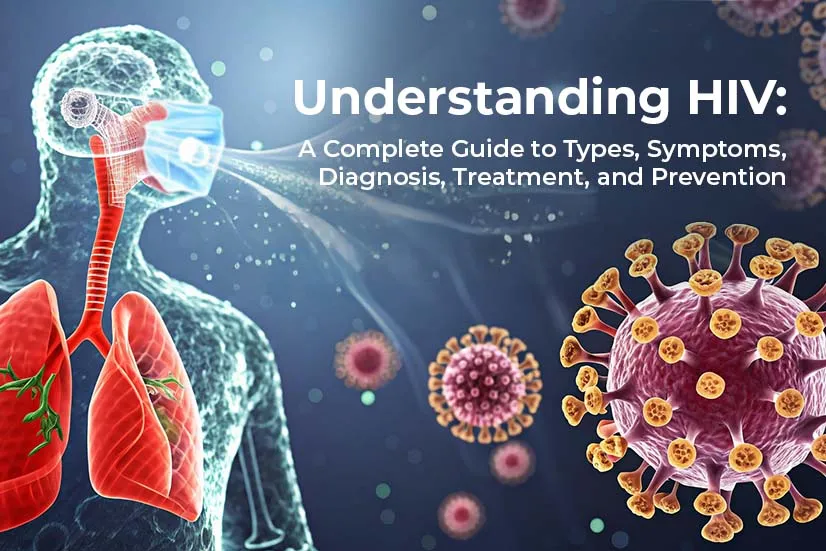
Understanding HIV: A Complete Guide to Types, Symptoms, Diagnosis, Treatment & Prevention
HIV or Human Immunodeficiency Virus is one of the...
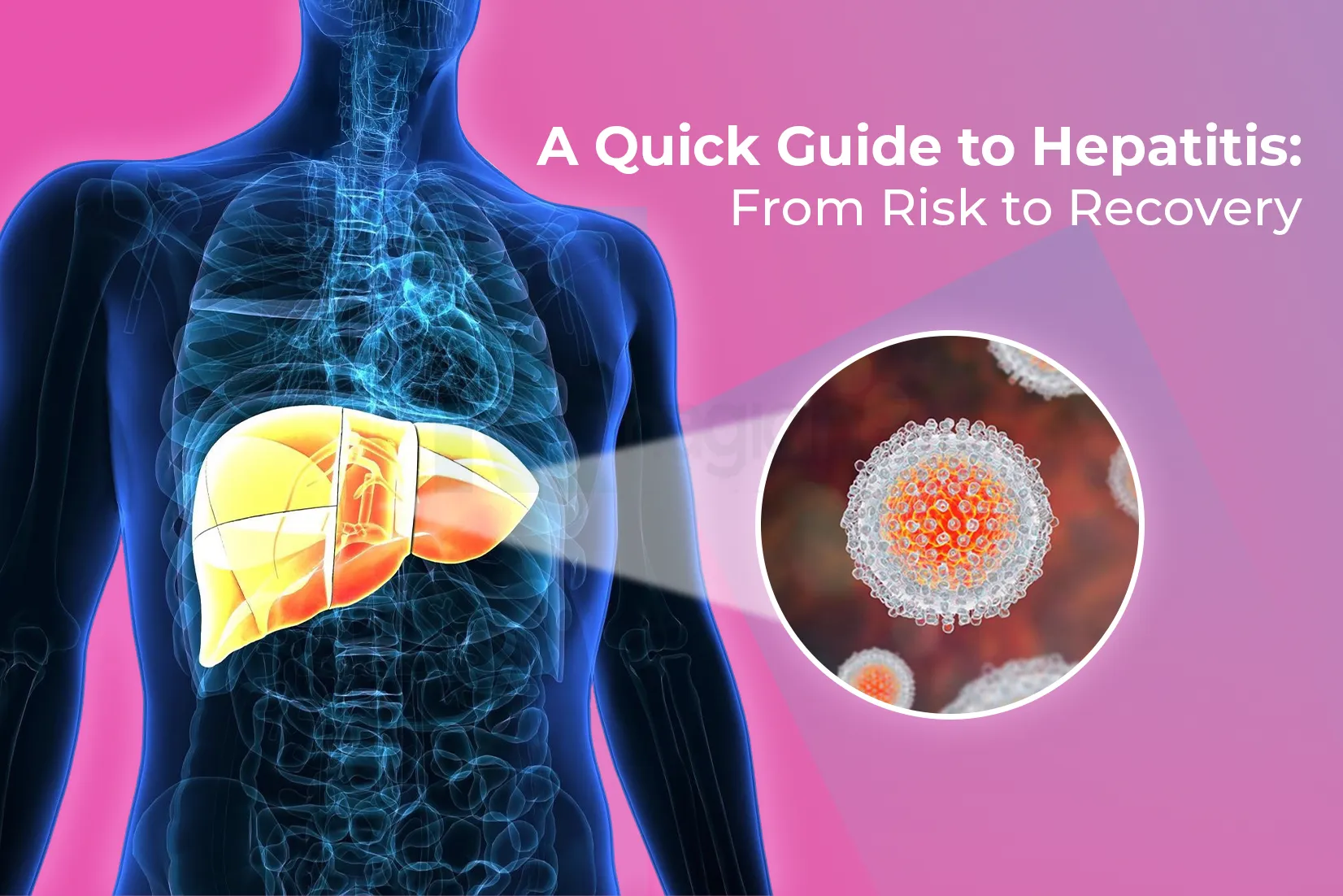
A Quick Guide to Hepatitis: From Risk to Recovery
Hepatitis is a serious and life-threatening condition that affects...

Skincare for Men: The Ultimate Guide for Healthy Skin
People think skincare is only meant for women from...

Can Ovarian Cancer be Prevented with Birth Control and Pregnancy?
In today's time ovarian cancer has become the most...

Korean Skincare Routine: Philosophy, Step by Step Guide to Transforms Your Skin
Over the ten years, the Korean skincare routine has...
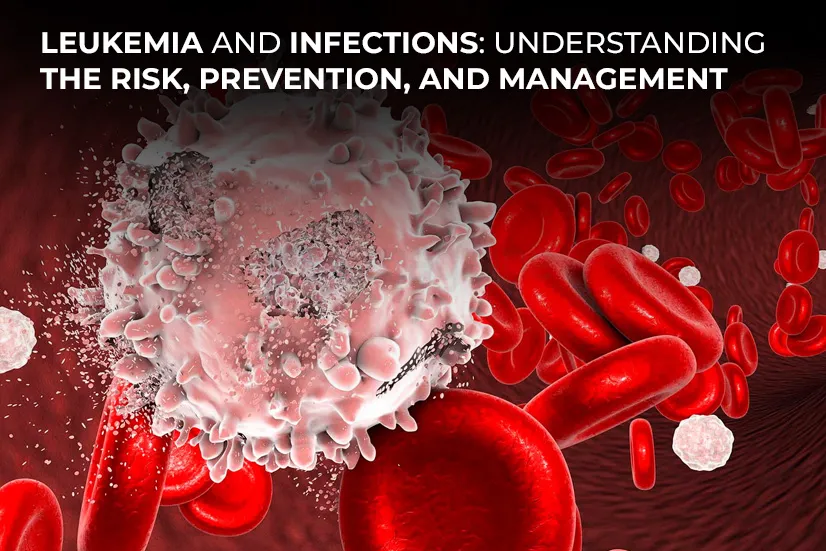
Leukemia and Infections: Understanding the Risk, Prevention, and Management
Blood cancer has many types which are based on...

Gut-Skin Connection - Gut Health and Glowing Skin
Have you ever heard "Beauty starts from within," but...

Goodbye Knee Replacements? The Future of Joint Healing with Bioactive Hydrogels
Joint pain and cartilage damage are the most common...
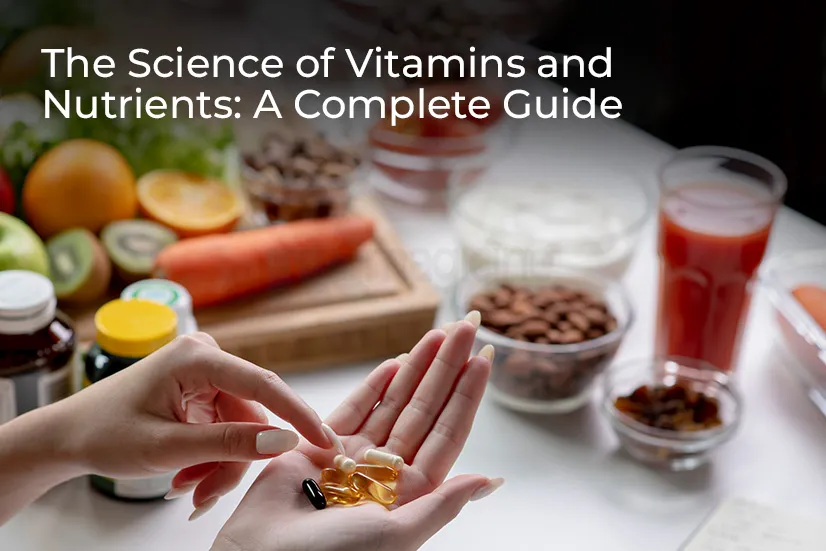
The Science of Vitamins and Nutrients: A Complete Guide
Why Vitamins and Nutrients Matter? ...




